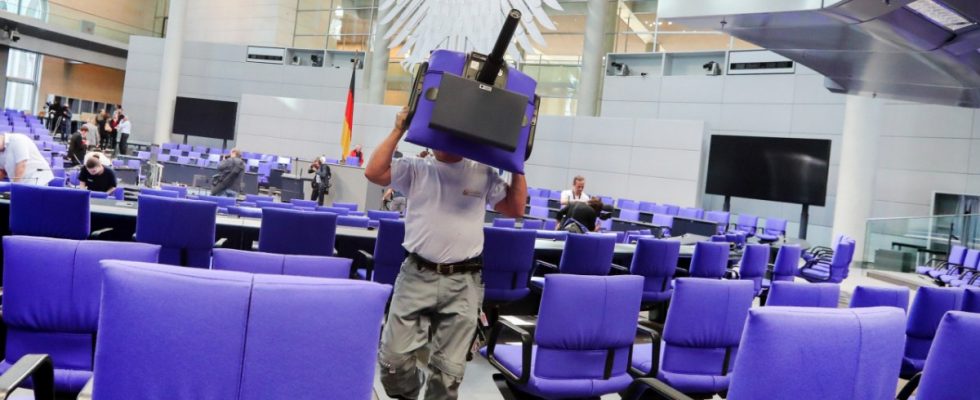For years, politics has been concerned with the question of how to trim the Bundestag, which has become much too large, back to normal. The current Bundestag has 736 members – far more than the originally planned 598 members and thus more than ever before. The number of parliamentarians has risen due to overhang and compensation mandates. Overhang mandates arise when a party wins more direct mandates than it is entitled to based on the result of the second vote. But how do you get the body down without putting one or more parties at a disadvantage?
The traffic light coalition in Berlin has now agreed on a reform of the electoral law: Essentially, the draft law fixes the number of MPs at 630, overhang and compensation mandates are to be completely abolished. In addition, the so-called basic mandate clause is to be dropped. So far, it has ensured that parties get into the Bundestag with the strength of their second vote result if they are less than five percent but win at least three direct mandates. That would mainly affect the CSU and the left.
This plan provoked harsh criticism from the opposition parties. There were downright angry protests in the ranks of the CSU, and there was talk of an “attack on democracy”. But in the meantime, state associations of the Greens are apparently also distancing themselves from the reform time online reported. According to this, Tarek Al-Wazir, Deputy Prime Minister in Hesse, argued with the “miserable external impact”: The draft law gave the impression that the traffic light was using the right to vote to weaken the opposition. According to the report, Baden-Württemberg’s Prime Minister Winfried Kretschmann took the view that “one should not make politics with the right to vote”.
The Greens’ point of contention: basic mandate clause
How time online continues to write, not only high-ranking Green politicians from the federal states, but also many federal Greens see the reform critically. Above all, they are against the abolition of the basic mandate clause. The traffic light was “politically vulnerable” and made a gift to the CSU. During the election campaign, she could argue that the traffic light wanted to “erase” her votes. Now the Greens are looking for a way out of the reform mess.
Since the law still has to be dealt with in the Bundesrat, there is an opportunity to object to the reform there and to refer the law to the mediation committee. But this raises the legal question of how the procedure could be limited to the deletion of the basic mandate clause. Otherwise there would be room to unravel the entire reform package or even withdraw it altogether.
Another question is whether the reform critics will succeed in getting a majority for the objection in the Bundesrat. The states in which the Greens govern with the Union and Bavaria together have 27 votes, but 35 votes are needed for a majority. That is why countries in which the SPD is co-governing would also have to participate. time online wants to know that Thuringia would be willing to join the cause. The next meeting of the Federal Council will take place on May 12th.
So far, there has been no statement from Green state representatives on the plan for the reform of the reform. Despite this, one thing is certain: the last word has by no means been spoken here.

